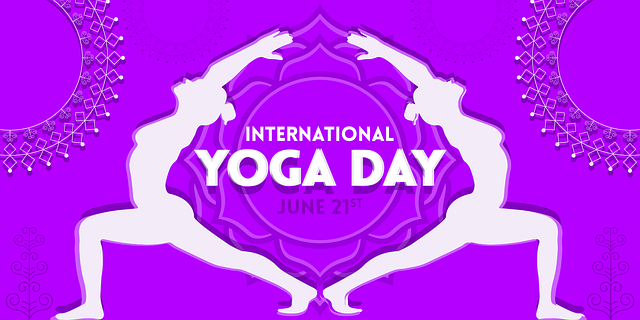Burnout, caused by prolonged stress, can be combated through mindfulness practices like meditation, breathing exercises, and yoga, which reduce anxiety, improve focus, and promote overall well-being. Incorporating these techniques into a structured routine helps manage stress triggers, fosters calmness, and enables a healthier work-life balance in today's fast-paced environment. Setting clear boundaries, prioritizing self-care (including physical activity, nutritious meals, rest, hobbies, and social connections), and integrating mindfulness moments into daily life are key strategies for achieving this balance and preventing burnout.
In today’s fast-paced world, striking a work-life balance is more crucial than ever to avoid burnout. This comprehensive guide delves into effective strategies to reclaim your well-being. We explore the profound impact of burnout and its effects on both professional and personal life. Through evidence-based approaches, we unveil mindfulness practices for stress reduction, offer insights into cultivating healthy habits, and emphasize the power of setting boundaries and prioritizing self-care. By implementing these techniques, you’ll find a renewed sense of equilibrium between work and personal fulfillment.
- Understanding Burnout and Its Impact
- Mindfulness Practices for Stress Reduction
- Creating Healthy Habits for Work-Life Balance
- Setting Boundaries and Prioritizing Self-Care
Understanding Burnout and Its Impact

Burnout is a state of emotional, physical, and mental exhaustion resulting from prolonged or excessive stress. It’s not just feeling tired; it’s a deeper sense of depletion that affects your ability to perform at work and enjoy life outside of it. When individuals experience burnout, they may feel cynical towards their job, detached from colleagues, and unable to meet even basic productivity standards. This can lead to significant health issues, including depression, anxiety, heart disease, and weakened immune systems.
Mindfulness practices have emerged as powerful tools in combating burnout. By focusing on the present moment and cultivating non-judgmental awareness, mindfulness helps individuals manage stress more effectively. Techniques like meditation, deep breathing exercises, and yoga can reduce symptoms of anxiety and depression, improve concentration, and enhance overall well-being. Integrating these practices into daily routines enables people to develop resilience against burnout, fostering a healthier work-life balance.
Mindfulness Practices for Stress Reduction

In today’s fast-paced world, where work demands often seem endless, incorporating mindfulness practices into your routine is a powerful tool for stress reduction and achieving a healthier work-life balance. Mindfulness involves being fully present in the moment, observing your thoughts and feelings without judgment. This simple yet profound practice has been shown to lower stress hormones and improve overall well-being. Taking a few minutes each day to engage in mindfulness exercises, such as deep breathing or meditation, can help you cultivate a sense of calm and clarity, enabling you to better manage the pressures of work and personal life.
By incorporating mindfulness practices into your daily routine, you can learn to recognize when stress levels are rising and take proactive steps to bring yourself back to a state of balance. This may involve setting boundaries, delegating tasks, or simply taking moments throughout the day to pause and breathe. These small actions can make a significant difference in reducing burnout and fostering a more sustainable and fulfilling lifestyle.
Creating Healthy Habits for Work-Life Balance

Creating healthy habits is a cornerstone in achieving work-life balance and preventing burnout. Incorporating mindfulness practices into your daily routine can significantly enhance this process. Taking moments to breathe, meditate, or engage in mindful exercises allows individuals to reset, refocus, and reconnect with their needs. By prioritizing self-care through these practices, one can develop a stronger sense of mental clarity and resilience, enabling better boundaries between work and personal life.
Additionally, setting structured routines for both work and leisure activities ensures a consistent balance. This includes dedicated time slots for tasks, breaks, and hobbies, allowing each aspect of life to receive the attention it deserves. Consistency in these habits fosters stability and reduces the overwhelming nature of daily demands, ultimately contributing to a healthier, more sustainable lifestyle.
Setting Boundaries and Prioritizing Self-Care

Setting clear boundaries is a powerful tool for achieving work-life balance and preventing burnout. It involves learning to say no to additional responsibilities or commitments when your plate is already full. By prioritizing your time, energy, and mental well-being, you can establish a healthy routine that incorporates both professional goals and personal needs. Mindfulness practices, such as meditation or journaling, can help you become more aware of your priorities and triggers, allowing for better decision-making regarding work assignments and self-care activities.
Self-care is an integral part of maintaining balance and avoiding burnout. This includes engaging in regular physical activity, eating nutritious meals, and getting sufficient rest. Additionally, making time for hobbies, spending quality moments with loved ones, or simply relaxing can rejuvenate your mind and body, ensuring you approach work with renewed energy and focus. Incorporating mindfulness practices into these self-care activities can further enhance their benefits, helping you manage stress and maintain a sense of equilibrium in all aspects of life.
Finding a healthy work-life balance is essential to prevent burnout. By integrating mindfulness practices into your daily routine, setting clear boundaries, and prioritizing self-care, you can create a more sustainable and fulfilling lifestyle. These strategies empower individuals to navigate the demands of modern living while preserving their well-being. Embrace these habits to cultivate a resilient and balanced life.
